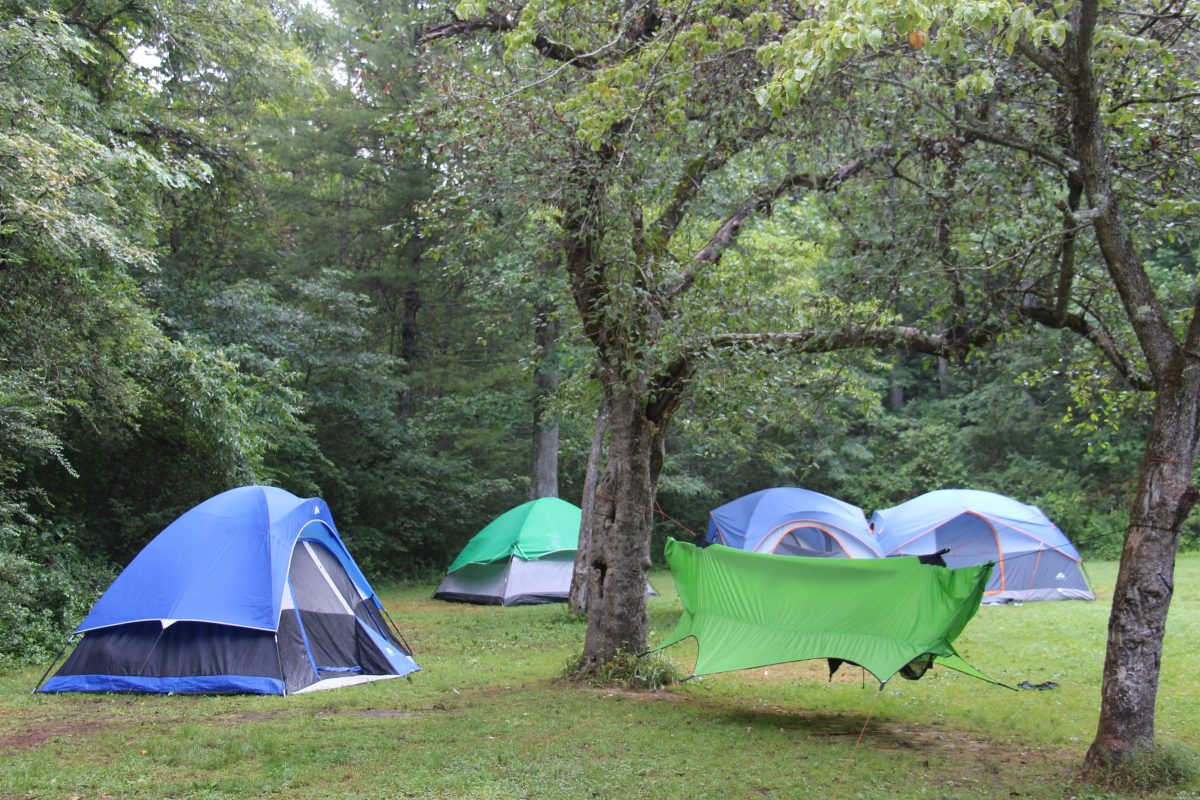The team at Skyland Camp for Girls likes to read together, and we want to share our recommended reading with you!
We’ve recently been hooked by The Nature Fix, in which Outside Magazine contributing editor Florence Williams delves into a modern understanding of our connection–and disconnection–with the natural world.
This book strikes a balance between compelling scientific discussion and a moving, vivid nonfiction testimony on the benefits of connection with nature. The author makes a compelling case for a simple solution to a host of mental and physical issues: just go outside.
John Muir once described the tendency of city folk to be “tired, nerve-shaken, over-civilized people.” Muir made his observation in 1901. Imagine what the hiker-philosopher might say about the nervous, exhausted majority of our modern society!
Williams draws on a growing body of evidence to support the proposition that modern people suffer an “epidemic dislocation from the outdoors.” Richard Louv, author of Last Child in the Woods, told her that “studying the impacts of the natural world on the brain is actually a scandalously new idea…it should have been studied thirty to fifty years ago.”
In the first section of the book, Williams takes us to Japan, where researchers explore nature’s role in boosting mental health based on the biophilia hypothesis, or “the idea that we feel most at home in nature because we evolved there.” In Utah, Williams describes the findings of neuroscientists who study nature’s restorative impact on our “attention-addled” brains, leading to sharper cognition.
You might notice a little lift in your mood when the breeze carries the fragrance of lilacs into your kitchen in the springtime. How do different “hits” of natural connection impact our bodies and minds? In part two, Williams details the impacts of different “doses” of nature: what happens to our smell, hearing and sight when we get quick bursts of access to nearby nature? Does looking past the end of your desk at a tree outside of your window count as a dose?
If five hours per month can offer benefit, what happens when we take the leap and schedule that 10-day backpacking or rafting trip? In “Backcountry Brain,” Williams highlights the physiological benefits of a deeper dive into the wilderness- when, as neuroscientist David Strayer observes, “something profound is going on.”
For many of us, the integration of our innate connection with nature into in urban spaces is one of the most compelling discussions in The Nature Fix. How does living in a primarily gray- concrete- environment impact the human psyche? Does green space in urban environments ease the impact of the nature deficit? What counts as nature?
Urban readers will be pleased to find that visiting an urban natural area is indeed helpful. As a society, we can take care in designing more green spaces into our cities…for our own good!
What’s refreshing about Williams’s book is that she dives into the science of our disconnection with nature without asserting that everyone must move out of the city and raise their children in the woods.
“I’m not a wannabe mountain sprite. There’s a lot I love about cities…it’s just that I noticed some dramatic things about my mood, creativity, imagination and productivity in different environments, and I started to ponder it.” -Florence Williams
For parents, considering what actually happens in the child’s neurology during an immersive experience in nature proves fascinating. But Williams does not try to shame readers into throwing away their smartphones or make the case for unplugging entirely. We live in an undeniably connected world, and many parents have determined that technology has a role in the education of the modern child.
Williams simply posits that whatever your connection with our civilization, nature doses can support you…the whole you.
Your child might sharpen her cognition and sensory awareness during a session at camp and then apply those skills as a member of her school robotics team. The point is that doses of nature are shown to support our cognitive functioning, emotional well-being and ability to cope with life’s challenges.
Much of The Nature Fix supports the efficacy of summer camp as a way of introducing children to a relatively significant nature dose in a safe environment where children are offered opportunities step outside their comfort zones.
“We are animals, and like other animals, we seek places that give us what we need. Given the opportunity, children will decamp to treehouses and build forts, wanting spaces that feel safe but with easy access to open run-around areas.” -Florence Williams
For generations, girls have immersed in the mountains of Western North Carolina to discover themselves at Skyland Camp for Girls. Far from the buzz of the smartphone and the routine of home, campers are welcomed to
As cities have grown and societies have welcomed the technological age, girls have been returning to our campus to connect with themselves through nature since 1917.
explore countless activities and build lifelong friendships, immersing their senses in our vibrant landscape. Girls build athletic skill and find creative expression, sharpening their cognitive skills as they play.
Our big takeaways from The Nature Fix: get outside–even if you don’t feel like it.–whether you’re backpacking the Canyonlands or identifying birds in your city park. Share with your kids how nature helps us feel and think with more depth and clarity. As Williams notes, “Without this knowledge, we may not ever fully honor our deep, cranial connection to natural landscapes.”
And, of course, we must make an additional takeaway of our own…send your girl to camp!





